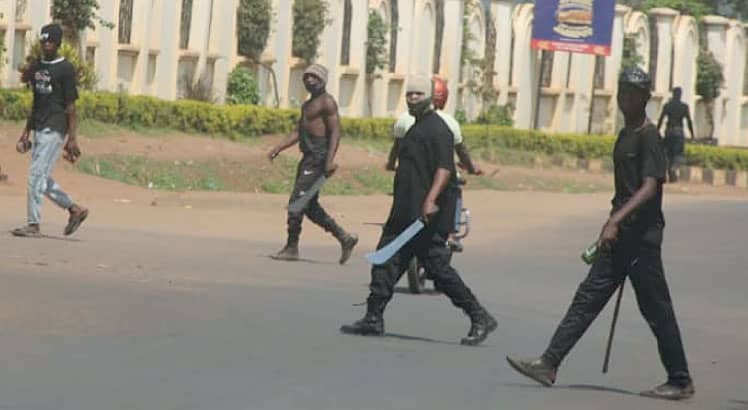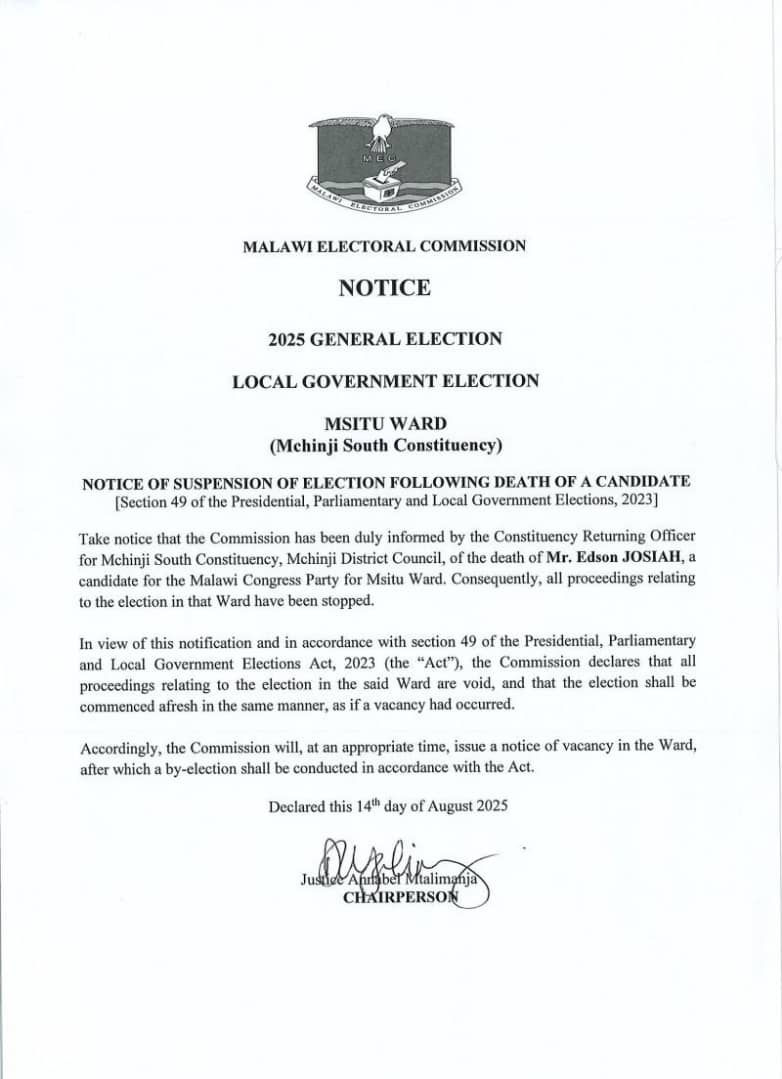By Burnett Munthali
As the 2025 general elections approach, many Malawians have raised questions regarding the voter registration process. To shed light on these concerns, I sat down with Sangwani Mwafulirwa, the Director of Media and Public Relations at the Malawi Electoral Commission (MEC), who provided valuable insights into the ongoing registration process.
BM: Mr. Mwafulirwa, there has been confusion about the quiet turnout at some voter registration centers. Why is it that some centers have fewer people compared to others?
SM: It’s important to note that there’s no set pattern for how people choose to register. Voters make their own decisions on when to visit the centers. This leads to both peak and lean times during registration. In your case, you might have visited during one of the lean times, which is why you didn’t experience long queues. We do, however, encourage people to register early to avoid the rush closer to the election.
BM: I see. Now, many voters are concerned about the new requirements to provide personal phone numbers and education levels. Can you clarify why MEC is collecting this information?
SM: I understand the concerns, and I want to make it clear that providing your phone number or educational background is not compulsory. This information is being collected purely for demographic analysis to help MEC in its targeted voter education and messaging campaigns. The data will be used to better understand voter trends and preferences, ensuring that our outreach efforts are effective.
BM: One of the other concerns raised by voters is the collection of biometric data, including fingerprints and photographs. This seems like a significant change. Could you explain the reasoning behind this?
SM: Certainly. It’s essential to clarify that in 2014, voters provided fingerprints via thumb stamping, and in 2019, MEC used biometric data from the National Registration Bureau (NRB). For 2025, MEC is collecting its own biometric data, including fingerprints and photographs. This will help create a more accurate and reliable voter register, preventing duplicate registrations. During voter transfers, no change will be processed unless the registrant personally verifies it using their fingerprint. This is to maintain the integrity of the voter list.
BM: There’s been some criticism regarding transparency about these changes. What steps is MEC taking to ensure voters are well-informed and understand these new processes?
SM: We have been continuously providing clear information about the changes, and we remain committed to doing so. Every day, we engage with the public through various channels to explain why these changes are necessary. It’s important for voters to listen to the messages coming from MEC and understand the reasons behind these decisions. We are also actively engaging stakeholders to ensure that there is a widespread understanding of the new procedures.
BM: Finally, how is MEC ensuring that all eligible voters can participate in the election process with confidence, especially considering concerns over new registration requirements?
SM: We are proactively providing information to all stakeholders and the public. We want to make sure that every voter feels confident and well-prepared for the 2025 elections. Additionally, we are always open to feedback and suggestions from the public to improve our processes. We want to make the registration process as smooth and accessible as possible for all Malawians.
Mwafulirwa’s insights highlight MEC’s dedication to improving the voter registration process and ensuring a transparent, fair, and secure election for 2025. As the registration period continues, the Commission remains committed to informing and empowering voters to exercise their democratic rights.



